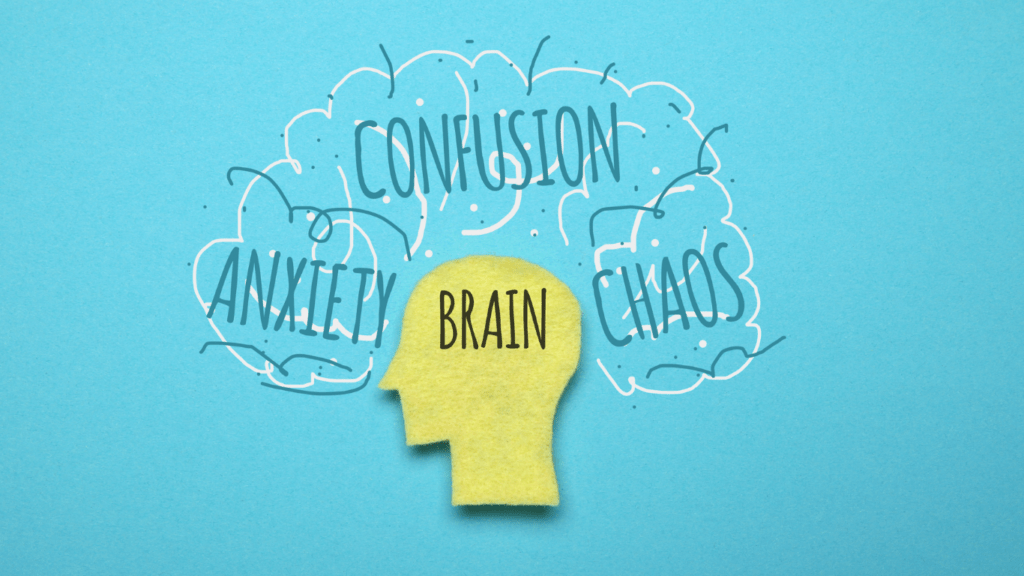Do you feel stressed when you walk into a room that is full of clutter? If this is you, then you are not alone. The reason clutter causes stress is because it looks and feels like chaos and disorganization. It’s difficult to find things when you need them. It causes our brains to be overstimulated. If you have a cluttered office, it can be hard to focus on work. When you have a cluttered pantry or closet, it may feel overwhelming and frustrating because you can’t find what you are looking for. How we react to the clutter that surrounds us externally is very similar to how we respond to mental clutter.
Mental clutter is anything that keeps you from thinking straight. It can slow you down and decrease your focus and productivity. Mental clutter is caused by many things, such as overstimulation, distractions, multitasking, and a never-ending to-do list. It makes your brain work on overdrive, which is mentally draining and exhausting. So how do we clean up the clutter in our brains that we can’t see? Decluttering your mind requires you to be intentional about where you place your attention and how you spend your time and energy. Keep reading for tips on clearing your mental clutter to stay focused and have less stress.
Journaling
Nothing clears the mental clutter like removing it from your brain and putting it on paper. If you can’t sleep at night because your to-do list is running through your brain, grab your notepad and pen and write it all down. You can then release it from your brain and rest easy, knowing you won’t forget anything because it’s all on your list.
Journaling is also a great way to start your day. It can be gratitude journaling or a prayer journal of scriptures you study. These types of journaling have one thing in common: They allow you to take your mind off the mental clutter and focus on positive things that bring you peace and joy. You can use your journaling time to organize your day, too. Create your daily to-do list, so you will know exactly what you need to do and hopefully avoid procrastination and distractions.
Exercise The Mental Clutter Away
Exercise isn’t just a healthy habit for your body. It can do wonders for your mental health, too. When you are active, it gets your endorphins going! It can help clear your mind and bring about feelings of wellness. It can improve your mood, boost your energy, and help you to focus better. So find an activity that you enjoy doing, such as dancing, walking, swimming, or running. Sometimes a walk or jog outside on a sunny day is all the therapy you need!
Limit Your Media Intake
All forms of media can cause the most mental clutter when you consume too much. We tend to turn on the news and then check our social media throughout the day. While it’s important to know what’s going on in the world and check in with your family and friends on Facebook, the truth is that media outlets can be downright depressing! The news is filled with tragedy, politics, and other stories meant to grab your attention and feel emotion. The problem is, the emotion you feel when watching the news is usually not good. It can weigh heavily on your mind.
And while social media is supposed to be fun, it’s a constant source of overstimulation and distraction. You are bombarded with ads, images, videos, and more things meant to grab your attention. And social media content is quickly consumed, causing you to intake a lot of information at one time. It’s best to consume your media content in small doses and don’t let it bog you down.
Take Control Of Distractions
Distractions are one of the top producers of mental clutter. They grab your attention and take you off focus when trying to work. It’s difficult to concentrate if there is loud noise around you. Picture yourself at your desk working, and someone starts hammering on a wall in the next room. Or maybe someone is playing music too loud. Your brain automatically switches to focusing on the sound. It breaks your focus and can be difficult to tune out and get back to what you were doing.
Multitasking is similar to distraction, as our brains are not meant to focus on more than one thing at a time. If you are trying to read your email while talking on the phone simultaneously, you will find it nearly impossible. You will either miss some of what the caller is saying or miss something in the email you are reading. Then you will need to ask the caller to repeat what they said or have to reread your email again a few times!
Become aware of what distractions cause you to break focus. Then you can remove the unnecessary distractions and give your brain ample time to process your work. It may mean closing your email inbox and web browser to avoid the temptation of checking email and pop-up ads. You may need to put your cell phone on airplane mode or turn off all notifications, so your phone alerts are not causing distractions. When you focus on one thing at a time and remove the distractions around you, your brain can concentrate and not work as hard.
A Decluttered Mind Is A Happy Mind
You may notice a lighter mood, less anxiety, and more calmness when you follow these practices. A decluttered mind is a happy mind!
Have you identified the sources of mental clutter in your life? What are some of the practices you will try to clear away the mental clutter and stay focused?

